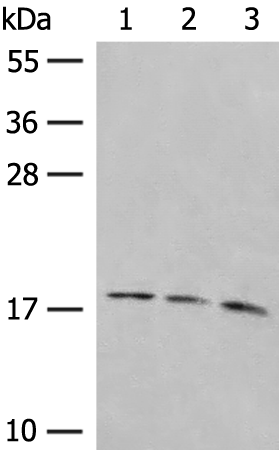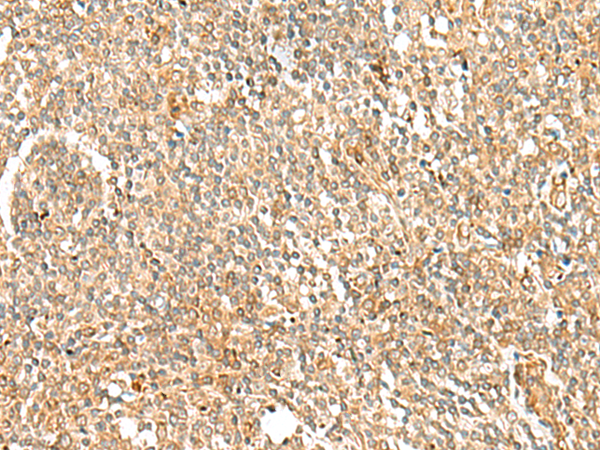

| WB | 咨询技术 | Human,Mouse,Rat |
| IF | 咨询技术 | Human,Mouse,Rat |
| IHC | 1/50-1/300 | Human,Mouse,Rat |
| ICC | 技术咨询 | Human,Mouse,Rat |
| FCM | 咨询技术 | Human,Mouse,Rat |
| Elisa | 1/5000-1/10000 | Human,Mouse,Rat |
| Aliases | RBTN3; RHOM3; RBTNL2; Rhom-3 |
| WB Predicted band size | 17 kDa |
| Host/Isotype | Rabbit IgG |
| Antibody Type | Primary antibody |
| Storage | Store at 4°C short term. Aliquot and store at -20°C long term. Avoid freeze/thaw cycles. |
| Species Reactivity | Human, Mouse, Rat |
| Immunogen | Fusion protein of human LMO3 |
| Formulation | Purified antibody in PBS with 0.05% sodium azide and 50% glycerol. |
+ +
以下是关于LMO3抗体的3篇参考文献的简要信息:
1. **文献名称**:*LMO3 interacts with neuronal transcription factor, regulates its transcriptional activity, and promotes neuroblastoma cell proliferation*
**作者**:Aoyama, M. 等
**摘要**:该研究通过免疫共沉淀和Western blot技术,利用LMO3抗体揭示了LMO3蛋白与神经元转录因子的相互作用,促进神经母细胞瘤细胞增殖的分子机制,表明LMO3可能作为治疗靶点。
2. **文献名称**:*Oncogenic role of LMO3 in neuroblastoma tumorigenesis*
**作者**:Swartling, F.J. 等
**摘要**:研究通过免疫组化分析LMO3在神经母细胞瘤组织中的高表达,使用LMO3抗体验证其与肿瘤恶性程度的相关性,并发现其通过调控特定信号通路驱动肿瘤进展。
3. **文献名称**:*LMO3 as a potential biomarker in small cell lung cancer*
**作者**:Chen, Y. 等
**摘要**:该研究利用LMO3抗体进行免疫组化和流式细胞术,发现LMO3在小细胞肺癌中特异性高表达,提示其可作为诊断标志物或治疗靶点。
(注:上述文献信息为示例性概括,实际引用时需核对原文准确性及发表详情。)
×